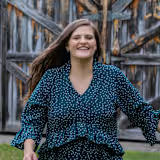Is Central’s campus safe for all students?
Brianne Twiddy was sexually assaulted at a high school party before she came to Central Michigan University. Her assault has led her to have PTSD and attend therapy sessions every other week. Even with her traumatic experience she still thinks CMU is a safe campus.
“I feel safe regarding my chances of being sexually assaulted, as most of my friends are also survivors and have discussed how to make sure we get home safe at parties,” Twiddy said. “If one drinks too much, we’ll call a cab home. We never leave another person, no matter the gender, unattended while drinking.”
She may feel safe because of her friends, but she doesn’t have very much faith in the university or the police.
“If I were to be assaulted on campus, however, I wouldn’t feel safe to report it because the current system rarely favors the survivor,” she said.
However, Twiddy’s safety on campus could be naive.
According to RAINN, “11.2% of all students experience rape or sexual assault through physical force, violence, or incapacitation (among all graduate and undergraduate students).”
Being a survivor of sexual assault has caused Twiddy to have lifelong problems, but Central does offer counseling services for victims.
“My rape caused me to have PTSD, which led me to also develop a substance abuse issue, depression and anxiety, which are all common among survivors,” she said. “The CMU counselors work hard, but I was switched between them several times because their schedules were too full to take on another client. The only thing that sincerely helped me that was at CMU was the support group.”
The support group is a part of SAPA and something that Oliver-Hempenstall is very proud of.
Twiddy said that she does appreciate the blue emergency lights that are spread throughout campus and the SAPA (Sexual Aggression Peer Advocates) resources, but she doesn’t think that they are enough.
“We can claim we are one of the safest campuses as often as we want, but it won’t be true unless we address the actual issues we are trying to hide from the public as a university by not revealing the real numbers,” she said.
She said that she thinks “we should be taught consent, no matter the gender identity.” She also said that women are taught “not to dress certain ways and to watch their drinks” but men are “not taught the exact definition of consent and how to ensure they have or can get it.”
Brooke Oliver-Hempenstall, Director of Sexual Aggression Services, agrees with Twiddy when it comes to teaching everyone what consent means and how to know when you have it.
“These are incredibly poor choices that someone has decided to make and it takes something from somebody without consent,” she said. “Because sexual assault is about consent and lack of.”
Oliver-Hempenstall said that the issue of consent and sexual assault is larger than just CMU. It is a national and global issue that stems from what we are teaching.
“...what are we teaching, are we even teaching about respect, about boundaries, about consent, do folks know what consent means,” she said. “I’m not saying it’s too late to prevent things when folks get to college but there’s a lot of time before folks get to college where there can be really open, educational and insightful dialogue happening.”
When it comes to advise for CMU on how to help victims of sexual assault, Twiddy had a few suggestions.
“Listen to us, and work to teach consent,” she said. “Address the issues and stop hiding the fact it happens because then nothing gets done. Also, get more counselors because the wait list is painfully long, and trauma doesn’t wait.”
Oliver-Hempenstall said that CMU is at the forefront of these issues.
“CMU has done an incredible job by having SAPA around for 20 years,” she said. “They didn’t wait for lawsuits, they didn’t wait for ‘oh shit’ moment.”
She did say, however, that CMU and SAPA, as a group, can always do better and there is always room for improvement.
Twiddy and Oliver-Hempenstall both said that sexual assault is not isolated to just college campuses. These issues go far beyond college and people are at risk at all points in their lives.
According to RAINN, women ages, 18-24 who are not college students are at risk 4x more than other any other age group.
“Sexual assault happens to all genders, and all genders can assault people,” Twiddy said. “It doesn’t have to be violent, and no matter what, your experience is valid. I was raped by a woman and it wasn’t violent, and it took me three years to admit it was rape. It made me understand the connection of that experience with my other issues, which was the only way I could eventually fully heal.”
Like this project
Posted Jan 29, 2023
An article for Grand Central Magazine about sexual assault and the safety of Central Michigan University's campus for women.
Likes
0
Views
5
Tags


